AI in education in 2025 is a fundamental driver of how students learn, how educators teach, and how institutions adapt. The rise of advanced artificial intelligence tools is enabling an unprecedented level of personalization in education, tailoring content, pace and style to individual learners’ needs and capabilities.
These tools go far beyond simple automation. They power intelligent tutoring systems, offer predictive insights into student performance, adapt in real-time to learners’ progress, and even assist in co-designing dynamic, individualized curricula. In this article, we highlight seven cutting-edge AI tools that are redefining the landscape of personalized learning in 2025. Each tool is not only technologically impressive but also practically impactful, helping shape a future where education is truly student-centered, data-driven, and continuously evolving.
1. Khan Academy’s Khanmigo (AI Tutor for Personalized Learning)
Khanmigo is an AI-powered personal tutor and teaching assistant developed by Khan Academy and built on GPT-4. Unlike a generic chatbot, it doesn’t simply give students the answers, instead, Khanmigo uses a Socratic approach to guide learners toward solutions, encouraging critical thinking and deeper understanding.
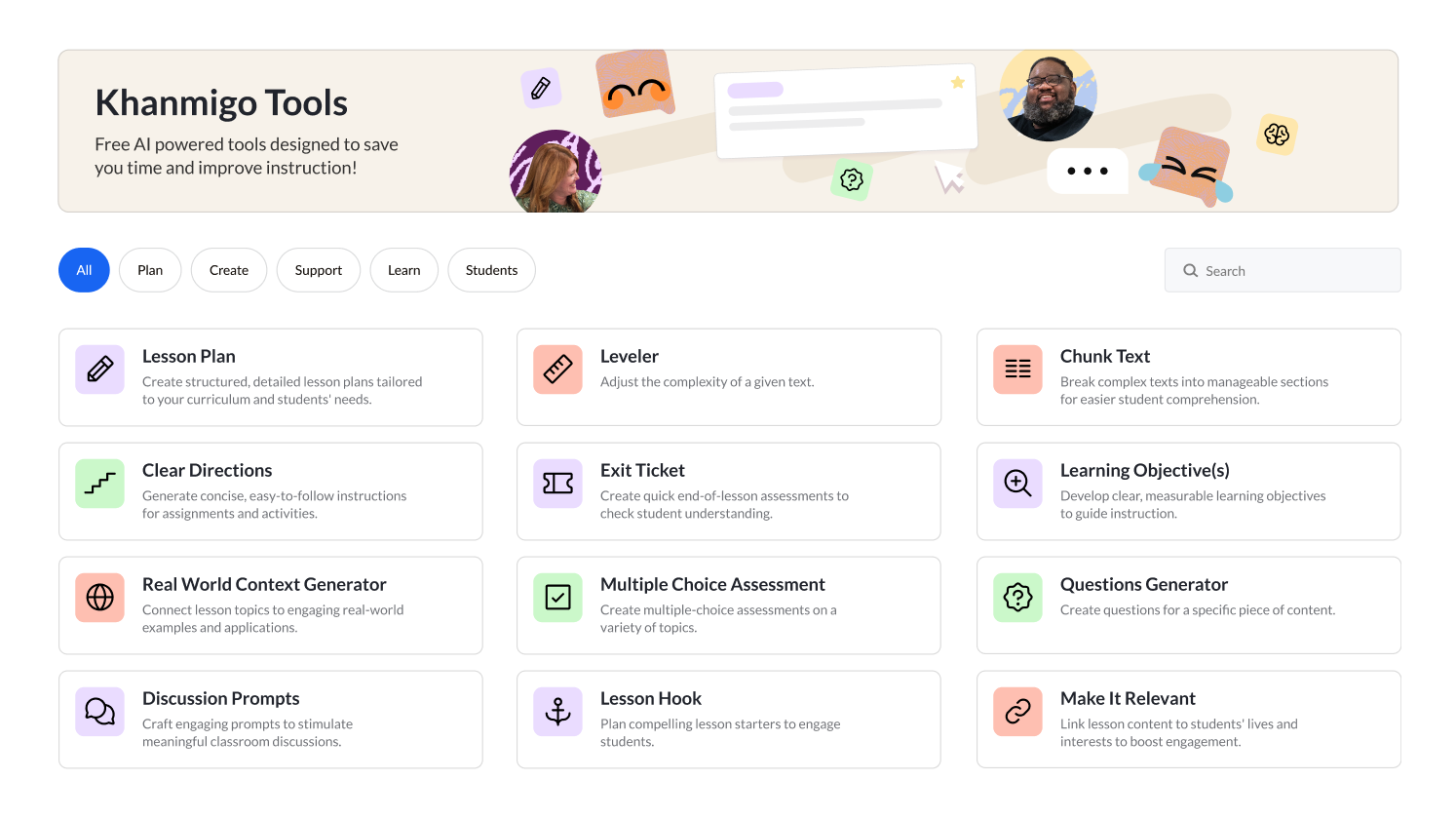
AI-powered teacher assistant by Khan Academy (Source: Khan Academy)
This always-available tutor can help with a wide range of topics (from math and coding to writing) and adapts its prompts based on each student’s progress. Launched in pilot programs in 2023, Khanmigo has already been rolled out in hundreds of classrooms with strong positive feedback. Teachers also benefit from Khanmigo’s capabilities: it can generate lesson plans, quizzes, and even rubrics on demand, saving precious planning time.
By blending Khan Academy’s extensive content library with AI, Khanmigo delivers one-on-one support at scale, a glimpse of what truly personalized, AI in education can achieve in the coming years.
2. Duolingo Max (AI-Powered Language Learning Mentor)
Duolingo’s GPT-4 powered features like Roleplay and Explain My Answer provide learners with interactive practice conversations and instant personalized feedback.
Language learning app Duolingo has embraced AI to take personalization to the next level. Its premium tier, Duolingo Max, integrates OpenAI’s GPT-4 to create an AI language mentor within the app. Learners using Duolingo Max get access to two groundbreaking features: Roleplay, which lets you have interactive simulated conversations with an AI character, and Explain My Answer, which provides on-the-spot explanations for your responses (whether right or wrong). These features make practice more engaging and tailored, for example, Roleplay adapts to your skill level and responds dynamically, so no two conversations are the same, while offering instant coaching on pronunciation or grammar. Duolingo’s team worked closely with OpenAI to refine these generative AI features, ensuring they stay on track pedagogically.
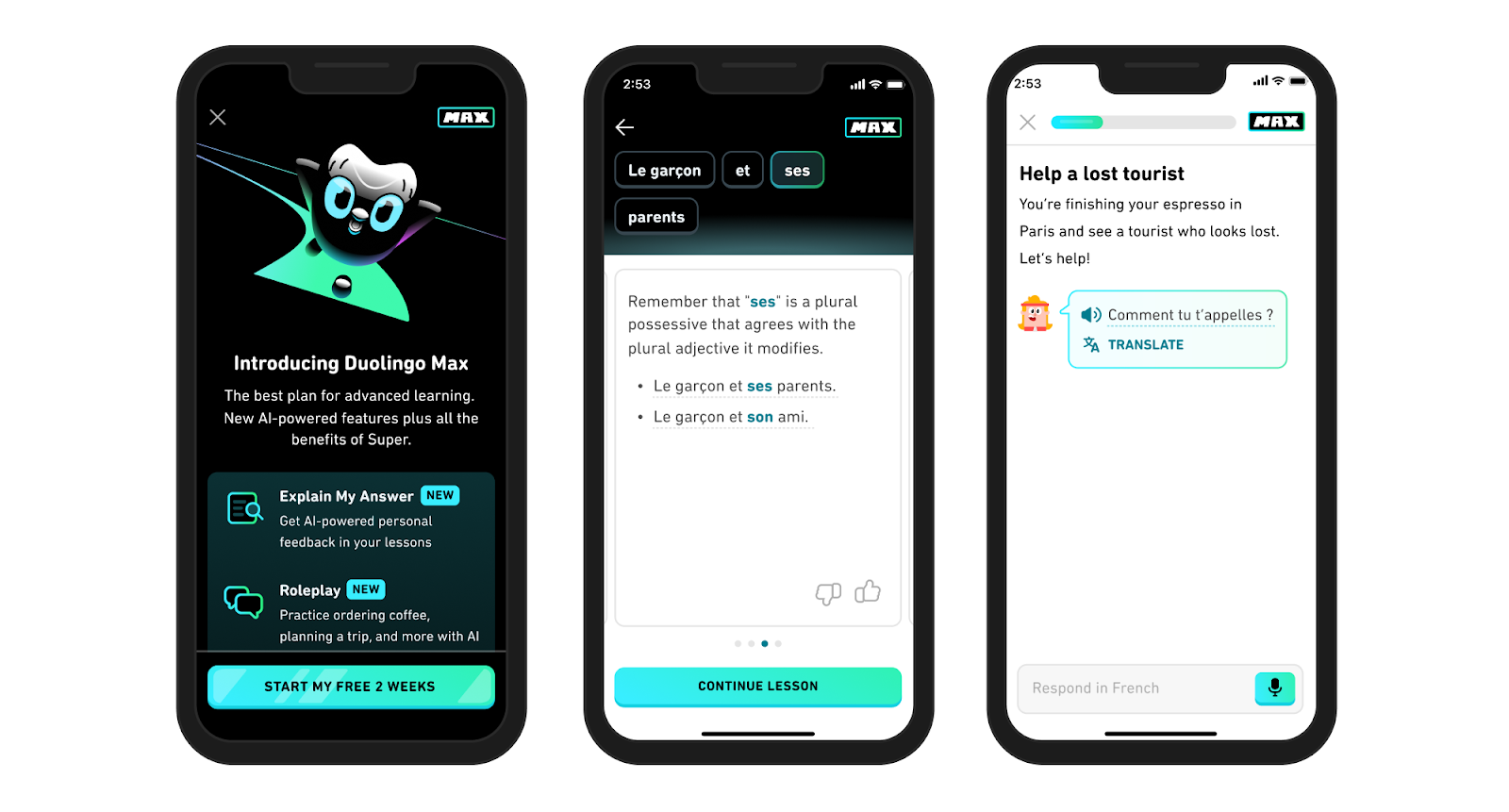
Duolingo Max Uses OpenAI’s GPT-4 For New Learning Features (Source: Duolingo Blog)
The result is a highly personalized learning experience: learners get to practice real-life dialogues and receive real-time feedback, almost as if a human tutor were by their side. By leveraging generative AI, Duolingo Max exemplifies how adaptive learning technology can make education more immersive and effective.
3. Quizlet with Q-Chat (Personalized Study Assistance)
Quizlet, a popular study platform, is using AI to turn passive reviewing into an active, personalized learning session. In 2023, Quizlet introduced Q-Chat, the first fully adaptive AI tutor built with OpenAI’s ChatGPT API. This feature allows students to have a back-and-forth tutoring dialogue with an AI, ask questions about their flashcards, get explanations, and even receive gentle nudges when stuck.
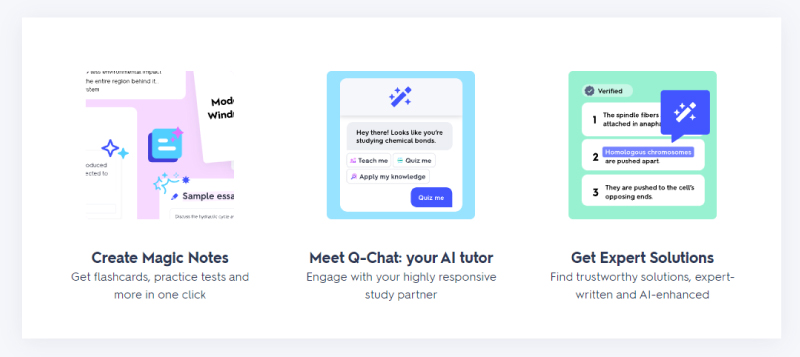
Quizlet is using AI to make studying easier with personalized tutoring, automatic flashcards, and even songs (Source: Fortune)
Quizlet’s new AI-powered tools can also create personalized study plans, for instance, the platform now leverages AI to suggest what topics each student should focus on based on their progress, ensuring they concentrate on areas that need improvement. It even added creative modes like generating mnemonic songs and summary notes with AI. The AI tutor component is a game-changer: “Q-Chat lets students talk to a ChatGPT-powered tutor,” offering an on-demand, Socratic learning experience integrated with Quizlet’s vast content library. Early implementations show these features making studying more engaging and efficient. With Quizlet’s AI, learners get instant feedback and customized practice, turning what used to be static flashcard drills into an interactive, tailored study session.
Quizlet’s AI-powered Magic Notes feature in action, summarizing content and quizzing the learner with follow-up questions. Such AI tools adapt to student performance, making study sessions more effective.
4. Carnegie Learning (Adaptive Math Curriculum Platform)
Carnegie Learning offers an AI-driven math learning platform that has long been a leader in adaptive learning.
Its system (which includes the MATHia software) provides a customized math curriculum for each learner, adjusting the difficulty and type of problems in real-time to suit the student’s level. As a student works through algebra or geometry problems, the AI assesses their responses, identifies knowledge gaps, and delivers targeted practice on those weak areas. This approach mirrors a one-on-one tutor that continuously adapts to the learner’s pace and style.
Carnegie’s platform is widely used in schools to supplement math instruction, and it doesn’t just benefit students, it also gives teachers detailed analytics and insights. Educators can see which concepts students struggle with through the AI’s analysis, allowing for timely interventions and personalized feedback in class. Studies have noted significant improvements in math proficiency where such adaptive systems are used, as each student gets a personalized learning path that ensures they master foundational skills before moving on.
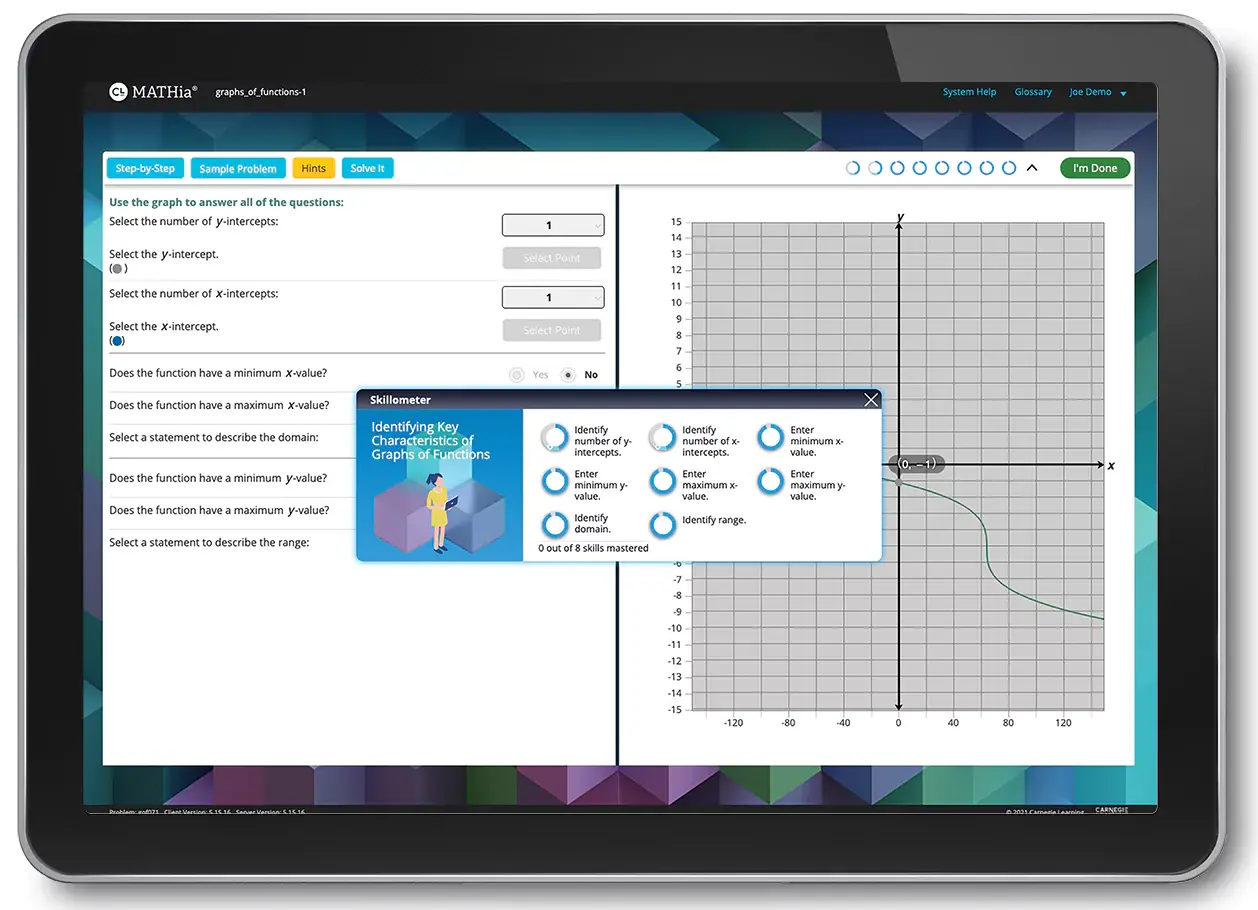
Carnegie Learning’s MATHia platform adapts problem difficulty and concept progression based on student performance, providing real-time personalized feedback and tracking mastery across key math skills. (Source: Carnegie Learning)
In essence, Carnegie Learning’s AI acts as a personal math coach for every student, while also automating aspects of curriculum pacing and problem selection that used to require intensive teacher effort.
5. Century Tech (AI Platform for Personalized Learning at School)
Century Tech is an AI-powered learning platform from the UK that brings personalization and analytics into everyday classroom learning. The platform harnesses artificial intelligence alongside cognitive neuroscience research to create individualized learning pathways for each student.
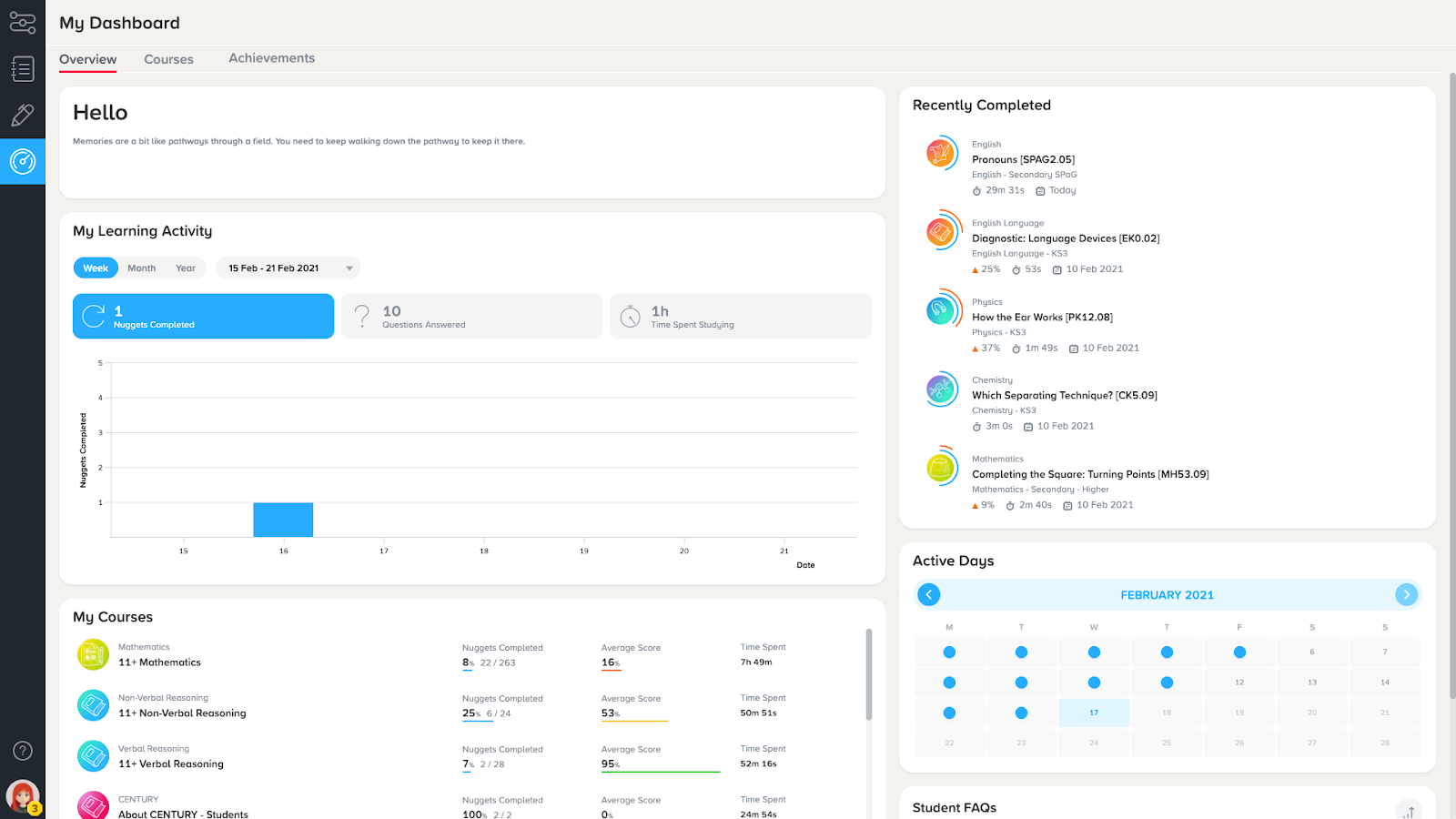
Century Tech’s student dashboard visualizes individual learning activity, mastery progress, and AI-generated recommendations in real time, enabling teachers to tailor interventions and personalize learning paths. (Source: Century Tech support portal)
Here’s how it works: as students engage with Century’s English, math, or science content, the AI algorithm analyzes their performance in detail, down to each click and each answer. It then dynamically adjusts the upcoming questions and materials to address that student’s unique gaps and strengths. This adaptive learning approach means two students might follow different paths through the curriculum based on what they’ve mastered or misunderstood.
Century Tech also provides rich real-time data to educators: dashboards highlight which students are struggling with which topics, enabling data-driven interventions. The platform essentially automates curriculum differentiation, a task that typically is very time-consuming for teachers, by tailoring content to each learner continuously. According to Century Tech, this leads to improved engagement and better outcomes, as learners aren’t bored by material that’s too easy or lost in material that’s too hard.
Furthermore, the AI can track progress over time and even predict when a student might be falling behind, giving educators a heads-up to provide support. By combining intelligent tutoring with teacher analytics, Century Tech exemplifies how AI can deliver personalized education in mainstream classrooms.
6. Coursera’s AI Coach and Course Builder (Automating Curriculum Design)
Global online learning platform Coursera has introduced a suite of AI features aimed at making learning more personalized for students and easier to deliver for instructors.
One major advancement is Coursera’s AI-assisted Course Builder, which can auto-generate course content and recommend learning materials for new courses. For example, an instructor can input a course topic and the AI will suggest a draft syllabus, relevant readings from Coursera’s content library, quiz questions, and even glossary terms. This kind of curriculum automation helps educators and training departments rapidly develop courses, saving countless hours of manual planning.
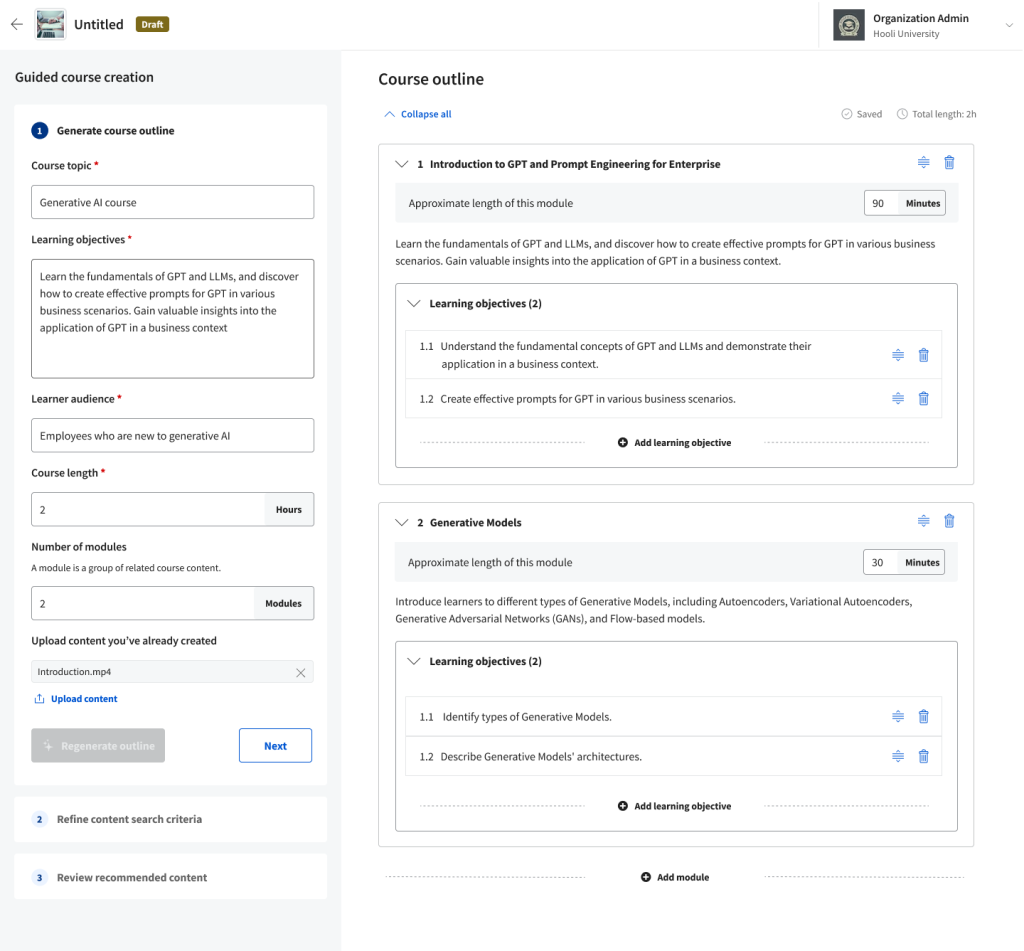
Coursera’s AI Course Builder interface: automatically generating course outlines, learning objectives and module structures. (Source: Coursera blog, March 2024)
Coursera has also developed an AI learning coach for students on its platform. This virtual coach (powered by GPT-4) can answer students’ questions as they watch video lectures or read articles, essentially providing on-demand tutoring specific to the course content. It can summarize a video, explain a tricky concept in simpler terms, and give personalized feedback on practice exercises. As Coursera’s Chief Content Officer describes, the AI coach will offer “instant feedback and tailored support,” functioning like a personal mentor for every learner.
Additionally, Coursera is using machine learning to translate course materials into multiple languages automatically, breaking down language barriers for millions of learners. Together, these AI initiatives on Coursera demonstrate how higher education and professional training are leveraging AI, not only to personalize the learning experience for each student, but also to automate and optimize the curriculum development process itself.
7. Civitas Learning (Predictive Analytics for Student Success)
While the previous tools focus on delivering personalized content or tutoring, Civitas Learning offers a behind-the-scenes AI platform that helps educators personalize support by predicting student outcomes. Aimed primarily at higher education institutions, Civitas Learning’s Student Impact Platform uses AI-based predictive modeling on student data to identify who might be at risk academically. By analyzing hundreds of factors (attendance, assignment grades, engagement in online systems, etc.), the platform can forecast which students are unlikely to pass a course or are in danger of dropping out, before it happens.
According to Civitas, these predictive analytics provide student success teams with “a signal pointing to what might happen without intervention”. In practical terms, if the system flags a student as high-risk, advisors or instructors can reach out proactively with additional support, mentoring, or resources to get that student back on track. This data-driven approach takes the guesswork out of early intervention.
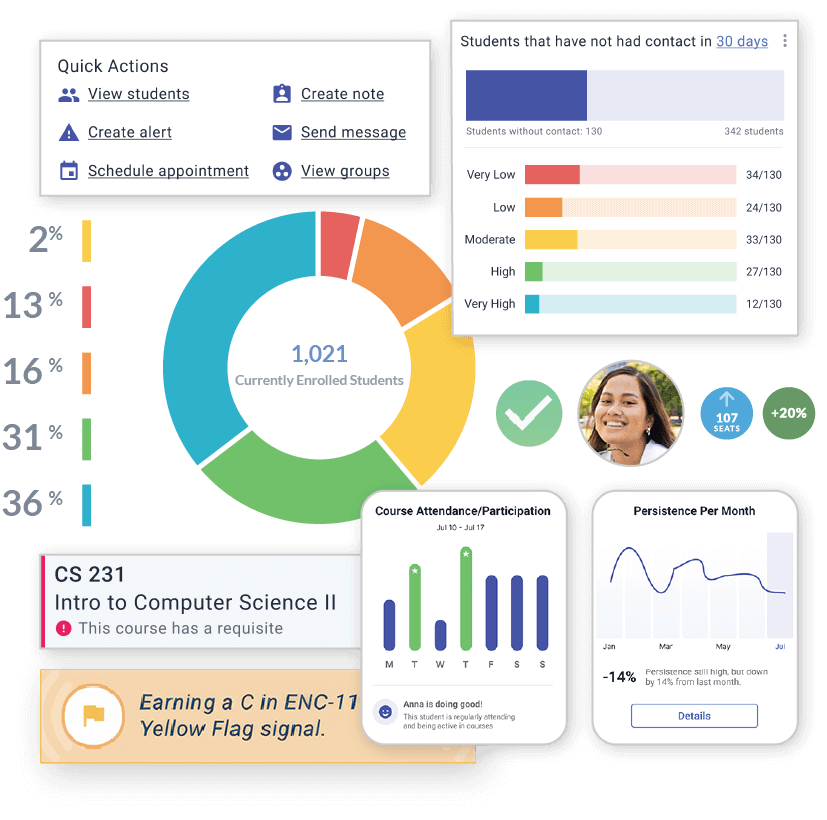
Predictive analytics dashboard from Civitas Learning showing student risk levels, attendance patterns, and early warning alerts to guide timely interventions. (Source: Civitas Learning)
Importantly, the AI is used to augment human decision-making, not replace it – as Civitas emphasizes, it helps institutions create and carry out effective student success initiatives guided by data insights. By leveraging AI to crunch big data, educators can personalize the student support and advising process at scale, ensuring that each learner gets the timely help they need to succeed.
Conclusion
As AI continues to redefine the future of learning, the question is no longer if education will change, but how fast organizations can adapt. For education providers, training platforms, and EdTech innovators, 2025 is the time to act.
To stay competitive, institutions must begin by identifying where AI can create the most impact, whether through intelligent tutoring, predictive analytics, or curriculum automation. From there, the path forward is about building robust, secure, and scalable AI-powered infrastructure that aligns with real learner needs and delivers measurable outcomes.
At Twendee, we’ve helped clients in EdTech and enterprise training go from concept to fully-operational AI-driven platforms. Our team brings hands-on expertise in:
– Custom AI model integration for adaptive learning and student success platforms
– Curriculum automation systems that scale with your content
– Predictive performance engines powered by real-time learner data
– Seamless integration into mobile, LMS, and SaaS environments
Whether you’re a startup building the next AI-powered education product or an established company modernizing your training systems, Twendee helps translate AI potential into real value for learners and revenue for your business.
Connect with us on LinkedIn or X to explore how Twendee can support your transformation: Twitter & LinkedIn Page
Read latest blog: Smart City Success Depends on Data Integration and System Interoperability





